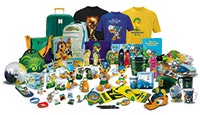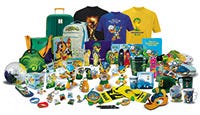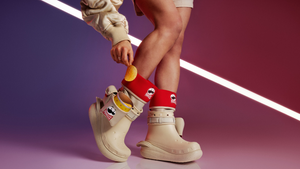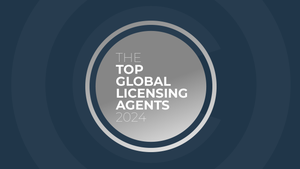In 2011, FIFA decided to bring its licensing program in-house, and that decision has paid off in spades.
April 6, 2018

In 2011, FIFA decided to bring its licensing program in-house, and that decision has paid off in spades.
In 2011, the Fédération Internationale de Football Association decided to bring its licensing program in-house.

"Following the 2010 FIFA World Cup, FIFA conducted a thorough review of our existing retail and merchandise program and decided to change the structure by bringing the complete licensing program in-house for the first time," says Thierry Weil, marketing director, FIFA. "This ensured that our strategy could be targeted toward each distinct market and that we could provide the right products for fans in each region."
The first true test of this move came with the 2014 FIFA World Cup Brazil, which saw the most extensive licensing effort ever undertaken by the group. The event featured more than 1,000 official stores around the world and 150 million licensed products created in partnership with 160 licensees including master licensee Globo Marcas, which managed the program in the host country, Brazil.
The organization's new, centralized structure also allowed FIFA to launch a global e-commerce platform in spring 2013 that is now available in 189 countries and eight different languages. Run in conjunction with four regionally based operating partners, the site gives fans around the world unprecedented access to FIFA merchandise.
"The ultimate goal for FIFA's licensing program is to serve the fans," says Weil. "This means having products available in each country that are specific to the tastes and needs of the local audience and that will enhance their experience of a given FIFA event, whether they are attending the matches in the host country or simply watching from home."
This strategy is continuing to score with fans. The FIFA Women's World Cup Canada, which took place this June and July, saw unprecedented sales, with final numbers expected to be four times higher than the 2011 tournament. Part of this success was due to e-commerce efforts run in tandem with the event, including the creation of a special section for the event on the FIFA e-commerce site. Core global licensees included Carlton Books for publishing; Fan Ink for apparel, accessories and novelties; Kayford for toys and plush; and Wincraft for accessories, stationery and homewares.
Despite record sales, FIFA doesn't see its licensing program as just another revenue stream, but rather as an important tool to build brand awareness and engagement.
To that end, the organization is already looking to its next big event, the FIFA World Cup Russia in 2018, and is currently meeting with licensees and retailers around the globe to develop strategies and core product lines.
Read more about:
FIFAYou May Also Like






